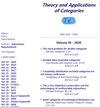Mudanças no Modelo de Negócio a partir da Ruptura de uma Joint Venture: Um Estudo de Caso
IF 0.4
4区 数学
Q4 MATHEMATICS
引用次数: 0
Abstract
This case study aimed to understand the changes that occurred in Nestea’s business model dimensions in Brazil, from the perspective of Nestlé`s managers, that were triggered by the rupture of an existing joint venture between Nestlé and Coca-Cola in 2010. The case is examined in the light of the Canvas method and basic principles of Dynamic Capabilities. Although joint ventures are known to be unstable organizational forms, they are still widely used by large organizations for the objective of creating value and developing competitive advantage. The creation and appropriation of value is identified through the business model, a well-defined system of interdependent structures, activities and processes that serve to organize the firm’s logic. The adopted methodology is based on a qualitative approach; data were collected by interviewing Nestlé executives directly involved in the event. The identified processes cover the four main areas: offer, customers, infrastructure and finance and confirm that six out of the nine dimensions proposed in the Canvas method were impacted. The article also confirms the relevance of applying the organization’s dynamic capabilities to business modeling, since having only a good business model does not ensure competitive advantage, because it can easily be copied.合资企业破裂后商业模式的变化:一个案例研究
本案例研究旨在从雀巢雀巢管理者的角度了解雀巢雀巢在巴西的商业模式维度发生的变化,这些变化是由雀巢雀巢与可口可乐在2010年现有合资企业的破裂引发的。根据Canvas方法和动态能力的基本原则对该案例进行了研究。虽然众所周知,合资企业是一种不稳定的组织形式,但它仍然被大型组织广泛采用,以创造价值和发展竞争优势。价值的创造和占有是通过商业模式来确定的,商业模式是一个由相互依赖的结构、活动和过程组成的良好定义的系统,用于组织公司的逻辑。所采用的方法以定性方法为基础;数据是通过采访雀巢公司直接参与活动的高管收集的。确定的流程涵盖四个主要领域:报价、客户、基础设施和财务,并确认Canvas方法中提出的九个维度中的六个受到了影响。本文还确认了将组织的动态能力应用于业务建模的相关性,因为只有一个好的业务模型并不能确保竞争优势,因为它很容易被复制。
本文章由计算机程序翻译,如有差异,请以英文原文为准。
求助全文
约1分钟内获得全文
求助全文
来源期刊

Theory and Applications of Categories
MATHEMATICS, APPLIED-MATHEMATICS
CiteScore
1.30
自引率
0.00%
发文量
0
期刊介绍:
The journal Theory and Applications of Categories will disseminate articles that significantly advance the study of categorical algebra or methods, or that make significant new contributions to mathematical science using categorical methods. The scope of the journal includes: all areas of pure category theory, including higher dimensional categories; applications of category theory to algebra, geometry and topology and other areas of mathematics; applications of category theory to computer science, physics and other mathematical sciences; contributions to scientific knowledge that make use of categorical methods.
 求助内容:
求助内容: 应助结果提醒方式:
应助结果提醒方式:


